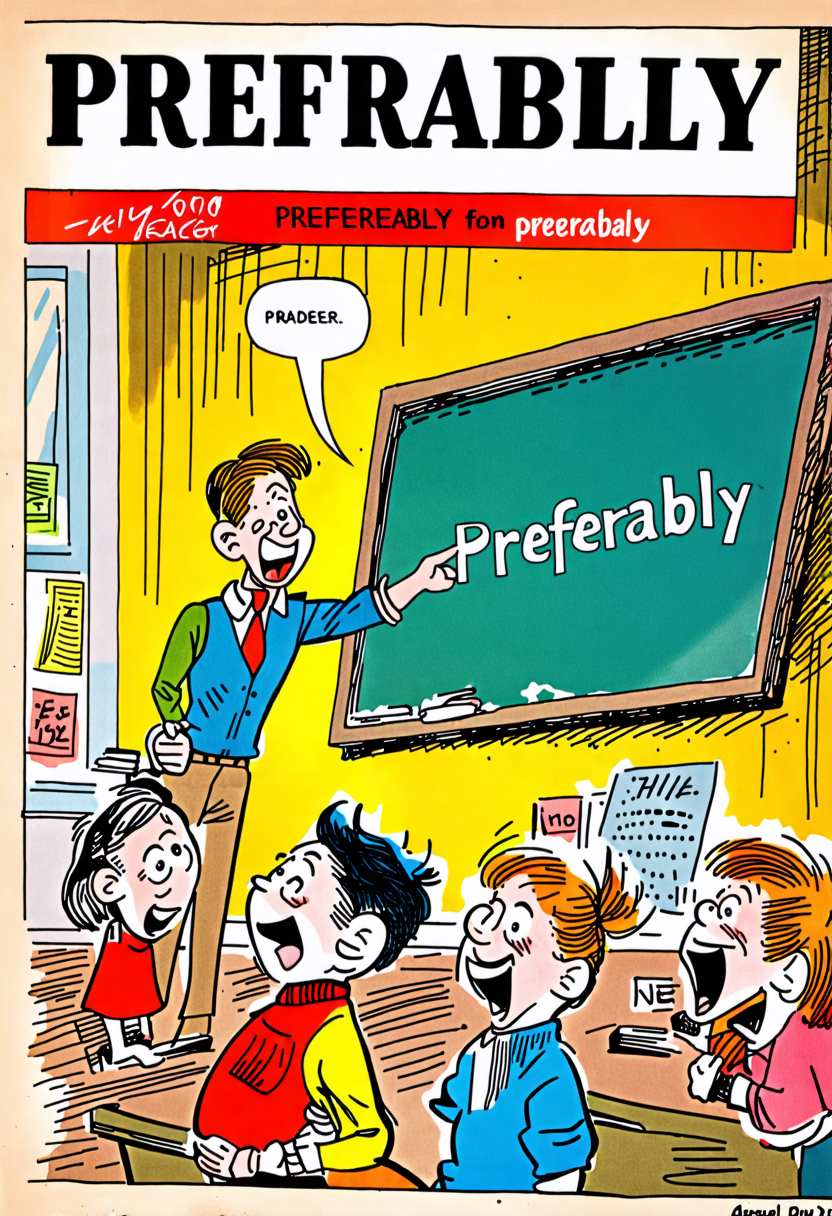Preferably or Preferrably?
The correct spelling is ‘preferably,’ derived from the word ‘preferable.’ It stems from the Latin word ‘praeferre,’ meaning ‘to put before.’ The common misspelling ‘preferrably’ with an extra ‘r’ should be avoided. Using ‘preferably’ enhances clarity and professionalism in your writing, indicating a preference for one option over another. As an adverb, it means ‘if possible’ or ‘ideally.’ Recognizing ‘preferably’ as the essential form is critical for accurate communication.
The Correct Spelling
The correct spelling of the word is ‘preferably.’ It is an adverb derived from the adjective ‘preferable,’ both meaning better or more desired.
The root word for both is ‘prefer,’ which originates from the Latin ‘praeferre,’ meaning ‘to put before.’
Despite its straightforward spelling, ‘preferably’ is often misspelled as ‘preferrably,’ with an unnecessary doubling of the ‘r.’ This mistake is common but avoidable.
Using spelling tools, dictionaries, and careful proofreading can help guarantee accuracy. Awareness of the correct root and suffixes can also aid in remembering the proper spelling.
Understanding ‘Preferably’
Understanding the correct spelling of ‘preferably’ sets the stage for comprehending its proper usage in various contexts. ‘Preferably’ is an adverb meaning ‘if possible’ or ‘ideally.’ It indicates a preference for one option over others.
For example, ‘We should meet tomorrow, preferably in the morning.’ This usage highlights the morning as the ideal time for the meeting. The word ‘preferably’ stems from ‘preferable,’ which in turn originates from the verb ‘prefer.’ This lineage maintains the meaning of favoring one choice.
Correct spelling guarantees clear communication and avoids confusion. Recognizing ‘preferably’ as the standard form helps in writing accurately and effectively, enhancing overall clarity in both spoken and written language.
Adverbial Form of ‘Preferable’
‘Preferably’ serves as the adverbial form of ‘preferable,’ indicating a preference or ideal condition in various contexts. It is used to express that one option is favored over others.
For example, ‘We will meet at noon, preferably at the main office.’ This word conveys the speaker’s desire for an ideal scenario without making it mandatory. Essentially, ‘preferably’ highlights the best choice.
Its correct spelling avoids doubling consonants or vowels, stemming from the root word ‘prefer.’ Understanding its role as an adverb helps to use it correctly and avoid common spelling mistakes like ‘preferrably.
Meaning and Usage
In various contexts, ‘preferably’ indicates a desired or ideal option. This adverb suggests that a particular choice is better or more favored. It conveys a preference, often implying that other options are less suitable or acceptable.
Here are three key uses of ‘preferably’:
- Expressing Ideal Conditions: ‘We should meet at 10 AM, preferably in the conference room.’
- Indicating Priorities: ‘The project should be completed by Friday, preferably earlier.’
- Suggesting Alternatives: ‘Please send the files digitally, preferably as PDFs.’
In essence, ‘preferably’ serves to articulate a preference or a more suitable choice, providing clarity and direction in communication. It is a versatile term used across various contexts to convey ideal scenarios.

Common Misspelling
A frequent error in spelling ‘preferably’ is the inclusion of an extra ‘r’, resulting in ‘preferrably’. This mistake arises from the misunderstanding of its root word, ‘prefer’. The correct spelling, ‘preferably’, does not need an additional ‘r’. Awareness of this common misspelling can help avoid errors in writing.
Below is a table highlighting the correct and incorrect forms:
| Correct Spelling | Incorrect Spelling | Explanation |
|---|---|---|
| Preferably | Preferrably | Extra ‘r’ is unnecessary |
| Preferable | Preferrable | Similar root word, same rule applies |
| Preference | Preferrence | Root word ‘prefer’ guides the spelling |
Root and Origin
The term ‘prefer’ has its origins in Middle English, tracing back to the Latin word ‘praeferre,’ which means ‘to put before.’ This root word has evolved over time, forming derivatives like ‘preferable,’ ‘preferably,’ and ‘preference.’ Understanding the origin helps clarify why ‘preferably’ is the correct spelling.
To better grasp this, consider the following points:
- Latin Influence: ‘Praeferre’ combines ‘prae-‘ (before) and ‘ferre’ (to carry), leading to ‘prefer.’
- Linguistic Evolution: Middle English adapted ‘preferren’ from Old French, shaping modern usage.
- Spelling Consistency: Recognizing the root ‘prefer’ aids in avoiding the common misspelling ‘preferrably.’
Historical Context
Throughout history, the evolution of language has shaped the way we spell and use words like ‘preferably.’ The word ‘prefer’ traces back to Middle English, originating from the Latin ‘praeferre,’ meaning ‘to put before.’ Over time, the suffix ‘-ably’ was added to form ‘preferably,’ meaning ‘if possible’ or ‘more desired.’ The consistent evolution of spelling rules has led to standardized forms, but historical influences sometimes cause confusion.
| Aspect | Description |
|---|---|
| Origin | Latin ‘praeferre’ |
| Middle English | ‘Preferren’ |
| Modern Form | ‘Preferably’ |
| Common Error | Adding an extra ‘r’ leading to ‘preferrably’ |
Examples in Publications
In numerous publications, ‘preferably’ is frequently employed to indicate a preference or desired condition. This adverbial form appears in various contexts, from academic papers to everyday media. It is used to clarify choices and conditions.
Here are some examples of how ‘preferably’ is used:
- Academic Journals:
‘The experiment should be conducted in a controlled environment, ideally at room temperature.’
- Business Reports:
‘We recommend scheduling the meeting, preferably in the afternoon, to guarantee maximum attendance.’
- Travel Guides:
‘Visitors should book their tickets in advance, preferably online, to prevent long queues.’
These examples highlight the word’s versatility and importance in conveying specific preferences or ideal scenarios in written communication.







